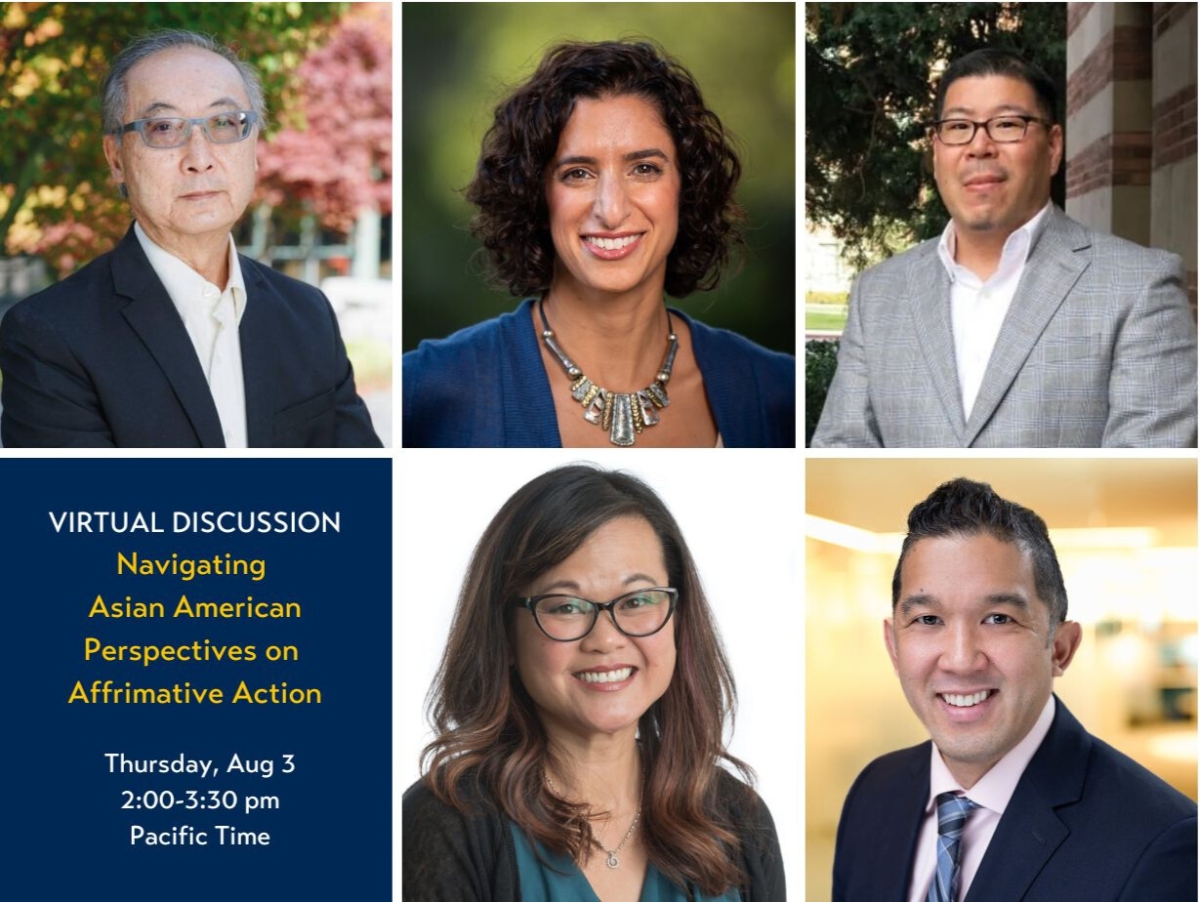Event Recap: Navigating Asian American Perspectives on Affirmative Action

Event Recap: Navigating Asian American Perspectives on Affirmative Action
This event began with a presentation by Neil G. Ruiz, the Pew Research Center’s Head of New
Research Initiatives, and a panel discussion moderated by Bill Ong Hing, Professor at the
University of San Francisco School of Law, featuring OiYan Poon, Program Officer at the
Spencer Foundation and co-PI at the College Admissions Futures Collaborative; Robert
Teranishi, Professor at UCLA and appointee by President Obama to the Board of Directors of
the National Board of Education Services; and Natasha Warikoo, Professor at Tufts University
and author of several acclaimed books on affirmative action.
Neil Ruiz opened the event with a data briefing, during which he revealed that the Asian American population holds mixed views on affirmative action and race-conscious admissions, based on extensive surveying done by the Pew Research Center. Ruiz highlighted that the Asian American community itself is quite diverse, with numerous ethnic origin groups and varying levels of wealth.
In the second session, Bill Ong Hing, OiYan Poon, Robert Teranishi, and Natasha Warikoo spoke in panel discussion. Hing began by briefly explaining the history of affirmative
action and the Supreme Court case Students for Fair Admissions v. Harvard (2023). The
panelists discussed various related topics such as the idea of the “Asian penalty” in college
admissions, potential ramifications of the Harvard case, and insights gleaned from the effects of
California's Prop 209 in the UC system. Important issues that also came up included the
possibility of using socio-economic class alongside, but not in replacement of, race-conscious admissions; the importance of affirmative action for combatting discrimination; and how the
Asian American community fits into the race relations conversation in the U.S. more largely. Panelists offered insights into how Asian Americans can pave the way for more racial equity in our schools and societies, and suggestions for reimagining admissions.
